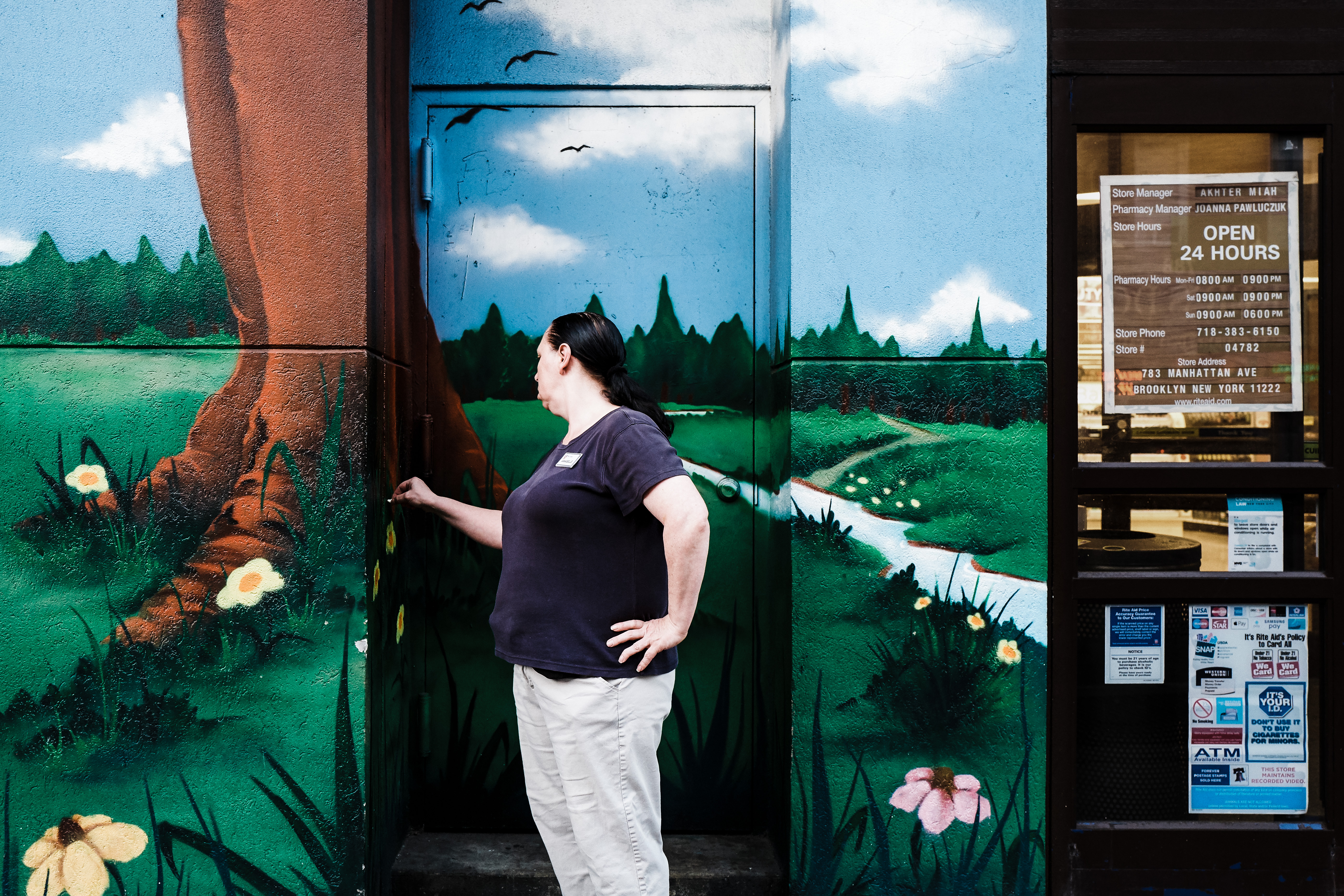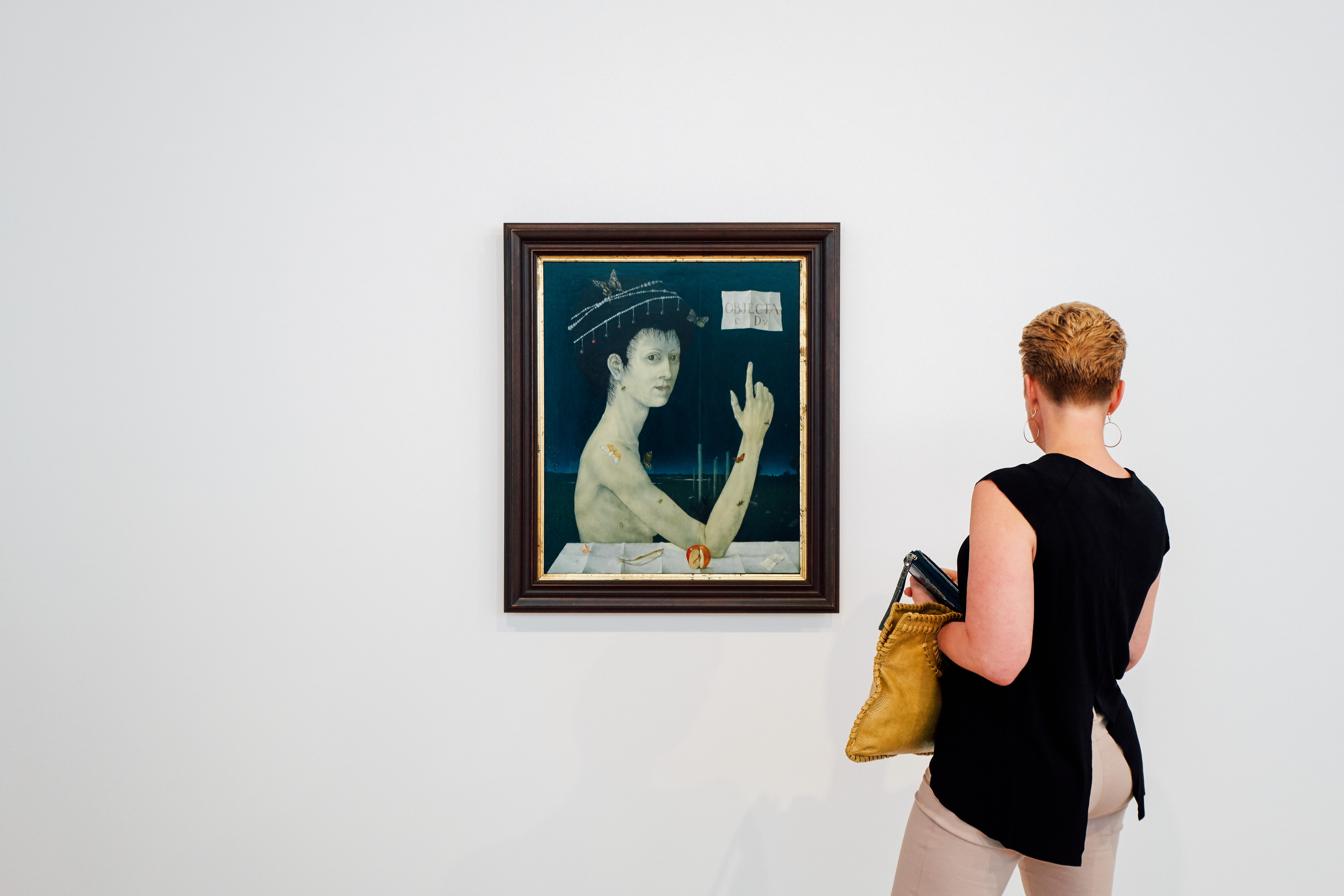–– 006 ––
Every Sunday
Every Monday, Eileen sorted her affairs. She boiled the kettle, made a cup of tea, then sat by the rear picture window and addressed her weekly letters. This week’s little pile of papers included a birthday card for Fiona, a check for €40 made out to Coláiste Íde (the all-girls boarding school in Dingle where she taught as a young woman), a note to her brother in Chicago, and a photograph of her with her seven sisters as young girls, which she was seriously thinking of sending to her youngest sister, Áine, with the hope that she could have it framed properly at that nice little shop in Tralee. After carefully addressing the letters and deciding against sending the photo, thinking instead that she and Áine could discuss it at the christening in May, she rose to gather her handbag and cardigan from the kitchen table, stuffed the letters neatly into her handbag, picked up her walking cane from the nook near the stove, and stepped out the front door into the softening chill and gray filtered sunlight of a late March morning in the village of Ballyferriter on the Dingle Peninsula.
She picked up a little steam as she rounded the bend and turned right onto the main road. Just as she cleared the church to her left, the sun broke through and hit the hills above, and she noticed that the stony clusters were a bit darker than their usual bleached sandy gray after the previous night’s rain, which must have gone on later than she realized. She had her own names for some of her favorite hills, and ever since she was a girl she had imagined the shapes of the rocks to be their eyes and ears, maybe a nose here or a pearl brooch there – the features unrepeatable between one hill and the next, each to each.
She walked on down the main road, past the pottery shop and the two pubs, around the slight bend to the right at the village edge, then stepped into the lobby of the Hotel Ceann Sibéal, where her second cousin, Máire, worked as the hotel manager. Later that afternoon, Máire would drop off Eileen’s letters at the post office in Dingle during her weekly rounds, which helped speed their arrival by a day or so, as she’d been doing for Eileen every week for the past twelve years.
After a quick chat and a cup of tea with Máire, Eileen made her way back up the main road, past the two pubs, the church, then a left, around the bend again, and home. She boiled the kettle, made a cup of tea, and ate two slices of brown bread with butter. The bedroom clock chimed 9 times, signaling the start of a young woman’s workday at a desk in some not so far away place, and signaling the end of Eileen’s Monday affairs.
Every Tuesday, Eileen did her washing and, after a few biscuits with tea, spent her afternoon on the Irish Times crossword puzzle. This week she filled in six words but wasn’t so sure about two of them, then decided to sit for a nap.
Every Wednesday, Eileen’s oldest son, Brín, stopped by for a visit and a cup of tea. This week, as often was the case, he looked over her work on the crossword puzzle and they chipped away at it a bit, together. One across, six letters, the third letter a G, maybe? Probably a G, yes. The hint: it’s a symptom of gals in distress.
S-I-G-N-A-L
Eileen smiled and patted Brín’s hand. “You were always so good with word games.”
They sat flanking the picture window and chatted about the spring weather, her conversation with Máire, and what she should wear for the christening in May. Brín agreed that framing the photo could wait, that otherwise it might be lost in the mail. “And besides,” with a cheeky grin, “you know Áine is eager to at least seem helpful. She’ll never be able to turn you down face to face.”
“What kind of frame do you think it should take?”
“Now, mam, you’re really taking things beyond my paygrade,” Brín said, as he rose to set his cup on the kitchen counter. He kissed her twice, lifted his jacket from the back of the chair, then went on his way.
Every Thursday, Eileen struggled to figure out what to do. Thursday was always, unfailingly, the longest day of the week. She might start in with a book or look over the crossword once more. Her mind never once found a new solution to the crossword on a Thursday and yet she might try, just once more before folding it away. She might look through her favorite photo album, the blue one. Or she might phone Noirín at the church to ask about the week’s verses or to hear of anyone that she should keep in her prayers. She might remember the other question she meant to ask Brín. And she might jot it down in the old journal in the basket next to the phone. And then she might leaf through the journal and see the names and addresses of their old friends, mostly gone, her husband’s colleagues, all gone, each entry chronicled in the illegible scrawl of her husband, gone. Yes, Thursday was always the longest day of the week.
Every third Friday, Eileen’s spirit lifted because Brín picked her up in the late morning and they made the short journey to Dingle where she would do her monthly shopping. She adored the twenty-minute car ride, rolling south across the Peninsula, pulling to the side of the road every so often to make way for another car, scanning the hills and houses and crests and valleys –– every single shape and feature so familiar to her and yet so surprising all at once, like a freckle just beneath the nape of a lover’s neck. She loved the bustle of workaday Dingle, the young mothers darting between shops and the tourists with their little gadgets and maps. She loved guessing where they were from and what those places might be like. She had been to London twice, long ago. She loved the extra time with Brín, even though he was usually pretty quiet, always had been. She loved the car ride back, rolling north across the Peninsula, those same hills and houses and crests and valleys, a mirror view of all those freckles, a record of all her memories here spinning slowly in reverse.
Yes, how she loved every third Friday. Today was the fourth Friday in March, so she thought about the previous Friday and looked at her calendar, then settled in by the picture window with a cup of tea and her book.
Every Saturday, in the summertime, Eileen volunteered at the history museum in the old schoolhouse on the main road in the village. And this week, although the museum would still be closed for two more months, the museum manager, a serious but well-meaning woman named Deirdre, had called for a planning meeting with all of the local volunteers to discuss visitor feedback and assign roles for the coming season. So after her midday cup of tea, Eileen rose to gather her handbag and cardigan from the kitchen table, picked up her walking cane from the nook near the stove, and stepped out the front door into the dappled reflections of a late March afternoon in the village of Ballyferriter on the Dingle Peninsula.
She rounded the bend, turned right onto the main road, then hummed an old song to herself as she took each step, two hundred steps give or take, past the hedgerow on the right, then turned into the pathway for the little white museum just across from the church.
She was greeted with a cup of tea and made her way to her favorite chair in Deirdre’s office, noting to herself that four of the five volunteers had joined for the meeting. In addition to Eileen, there was Fionnuala, Muireann and Rionach, each within a decade of her own age, each with their own career long since gone, careers she had likely once known upon meeting them but had long since forgotten. Rionach had been a teacher too, of that she was fairly certain. Was it in Dingle too that she had worked? Or was it Killarney? In any case, they were only five minutes in and why, Lord, why did Fionnuala always have to be such a naysayer? This was, after all, a volunteer position at the village museum. How hard could it be, offering a cup of tea alongside a local tale or two to the occasional visitor? Asking them if it’s their first time in Dingle and, especially if they’re American, asking them how on earth they heard about Ballyferriter. Asking if maybe they would be so kind as to make a small donation. Surely it was just a nice little way to help out and pass the time. Surely it wasn’t worth Fionnuala's moaning.
The meeting wrapped around four o’clock and Eileen made her way, as she sometimes did as a treat for herself, to her favorite of the two pubs, Tigh Uí Mhurchú (or Murphy’s for the odd Brit or American), where they often had a session on Fridays. She settled into her corner spot and eyed the usual afternoon crowd, consisting of a few dusty acquaintances from around the village. Maybe she was lonely, sure, if it was possible to stay lonely for two decades, if it was possible for an emotion to stick when there was nothing really to cut it against, nothing to compare it with. But she didn’t come here for conversation. Instead, she sipped her half-pint of Guinness and watched the light fade through the frosted windows, tilting time into evening as the sun slipped closer to the edge of Waymont, closer to the edge of Slea Head Beach, closer to the edge of Tearaght Island, closer to the edge of the westernmost point in Europe, closer to the edge of the wild Atlantic, closer to the edge of the known world, or at least the edge of the only world she'd ever known.
The crowd picked up bit by bit as she nursed another half-pint, then another. The musicians arrived around half past seven, tuned haphazardly, palmed their pints from the barman and started at it with the songs. They were the songs of her youth and of her mother’s youth and of her mother’s mother’s youth. They were the songs of her first spring with Colm, when they bought the little house on the outskirts of Dingle and started their life together. They were the songs of her fourth spring with Colm, when they lost their second child in the early morning hours. They were the songs of her thirty-fourth spring with Colm, when they bought the little house just off the main road in the village of Ballyferriter on the Dingle Peninsula, with her nine kids all grown and moved away, all except for her oldest son, Brín, who had always said he wanted to stay in Dingle and had done. They were the songs of her twentieth spring since Colm had passed away. They were the songs of her life, here, now.
As the musicians took their first break and the evening shifted swiftly into night, Eileen rose to gather her handbag and cardigan. She floated across the room as the others made way, cane in hand but not needing it, feeling fresh and full of energy after the drink and the music. The barman met her with a nod and her usual whiskey nightcap. She tossed it back, then made her way home.
Every Sunday, Eileen went to mass.

Ballyferriter, Ireland
August, 2014
Camera
Contax G2 / Kodak Ektar 100
Originally Published
November, 2016
Contax G2 / Kodak Ektar 100
Originally Published
November, 2016
Up for another? Take your pick.
(stories about youth)
a boy looks for a certain kind of place
a boy finds an unusal map
a girl discovers wind
all stories

is made by
Nathan Heleine

NT.HN
VSCO
Images found/made with a small assortment of film & digital cameras then edited in Capture One & Lightroom. Stories written in Ulysses. Site designed with Affinity & published with Cargo.
Write to hello@nt.hn with notes of encouragement or derision, commission offers, collaborative opportunities and so on.
All works presented here © 2016 - 2018 Nathan Heleine
Write to hello@nt.hn with notes of encouragement or derision, commission offers, collaborative opportunities and so on.
All works presented here © 2016 - 2018 Nathan Heleine
See it, make believe it.









